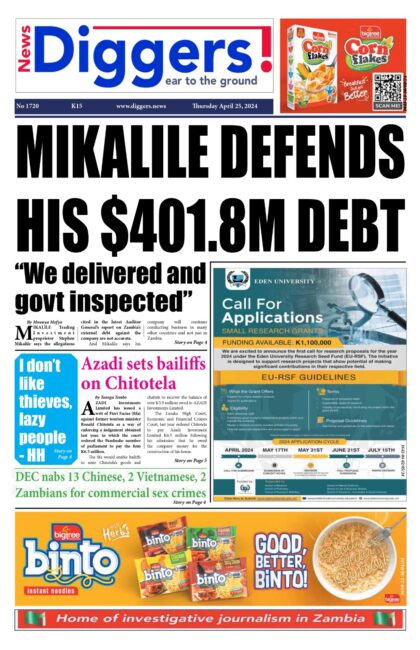Consumer Unity Trust Society (CUTS) national coordinator Chenai Makumba says implementation of Sales Tax and forced liquidation of Konkola Copper Mines Plc (KCM) has the potential to negatively affect the kwacha’s performance.
In an interview, Makumba said Sales Tax and the KCM fiasco had sent a signal of uncertainity to investors, predicting that some would opt to leave.
“Potentially, the Sales Tax and KCM will cause a certain level of uncertainty, especially among investors looking to invest in the country and you may see some money leaving the country, hence reducing the demand for the kwacha,” Makumba said.
“Given that it is not clear as to how we are going to proceed with the Sales Tax, it is indicated that the Sales Tax will be implemented on the first of July, however, it still needs to go through two readings in Cabinet, hence causing reservations among investors.”
She added that there was need for government to clearly communicate how Sales Tax will be implemented in order for businesses to plan accordingly.
“The Ministry of Finance should clearly come out with the implementation plan for the Sales Tax in order to allow the public to plan properly so that they are able to make informed decisions,” advised Makumba.
“The lack clarity on the part of all stakeholders breeds a certain level of discomfort and has implications on investors’ sentiments and the kwacha.”
The kwacha has appreciated below the K13 per dollar mark for the first time in around two months, trading at an average K12.91 and K12.96 per dollar for bid and offer, respectively, by the end of last week, according to the Bank of Zambia (BoZ).
The local unit’s continued rebounding against the greenback meant it gained an impressive 1.54 per cent by mid-last week, which was at its strongest in close to two months, according to FNB Zambia’s daily treasury newsletter, buoyed by corporates’ offloading of US dollars to meet monthly statutory obligations, among others.
This was after the kwacha depreciated sharply against major currency convertibles to hit the K14.00 per dollar psychological barrier five weeks ago, the weakest since November, 2015.












